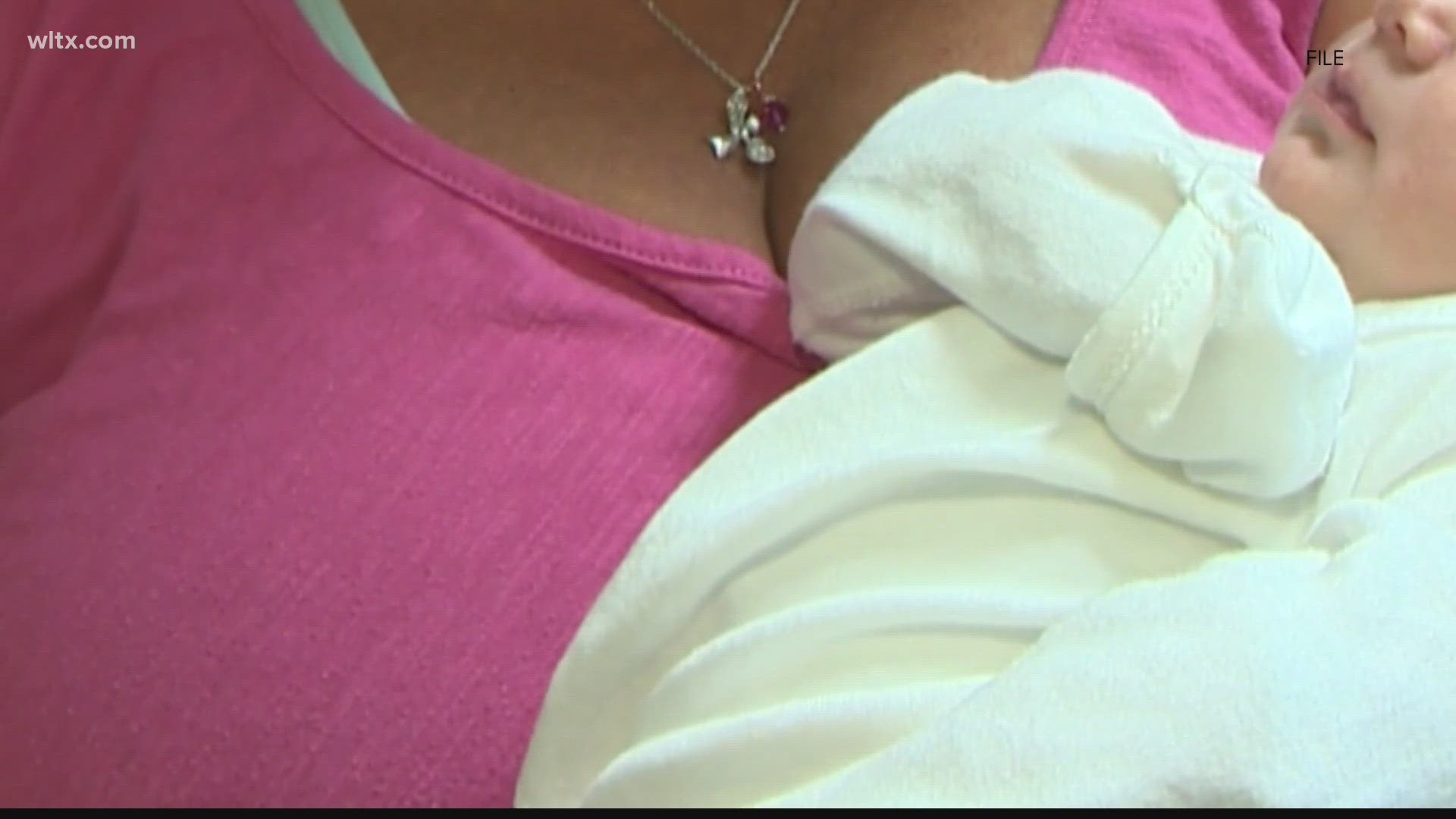COLUMBIA, S.C. — May marks National Maternal Mental Health Month, and with Mother's Day approaching, experts are shedding light on postpartum depression and its impacts in South Carolina and nationwide.
According to recent research, postpartum depression is becoming more common across the country.
News19 spoke with experts in South Carolina to learn more about it, including Dr. Ashley Jones, a perinatal psychiatrist with Prisma Health and clinical assistant professor at the University of South Carolina.
She said she's seen the stigma decreasing, with more people talking about and identifying postpartum depression.
"We've certainly seen it diagnosed much more often now than we did 10 years ago, for sure," Dr. Jones said. My hope is that we're doing a better job screening for it, identifying it, and then offering treatments for it."
Dr. Tricia Seal, an OBGYN for Prisma Health and a clinical assistant professor with USC, said her office screens for postpartum depression through surveys after the first and second postpartum visits. She said local pediatricians do as well.
These doctors said they watch for suicidal thoughts.
According to a study published in the American Journal of Obstetrics & Gynecology, the prevalence of postpartum depression in the U.S. has increased dramatically over the past decade, from 9.4% in 2010 to 19.3% in 2021.
"Having a baby is a stressful time for any new mom; they would tell you that," Dr. Seal said. "'Cause there's all these emotional factors: you have fatigue on top of it when you're a primary caregiver, lifestyle factors including who's helping. You're in your family to help take care of yourself and take care of the baby."
Experts said it's not just one factor but the combination of several, such as changes to sleep, lifestyle, hormones and more, that can tip the scales.
Dr. Jones said that sometimes postpartum depression can even start during pregnancy.
"When we usually see it postpartum, it develops -- it can develop within a couple weeks -- and sometimes we're monitoring 'til up to a year after delivery," Dr. Jones said. "But what we start seeing at first is some changes in sleep."
She said it's important that women know there are resources, including two Food and Drug Administration (FDA) approved postpartum specific medications: Zulresso (brexanolone) and Zuranolone (zuranolone). There are also support groups, counseling and research studies.
Doctors said the medical community needs to continue working together to address postpartum depression.
Here are some additional postpartum depression resources:

